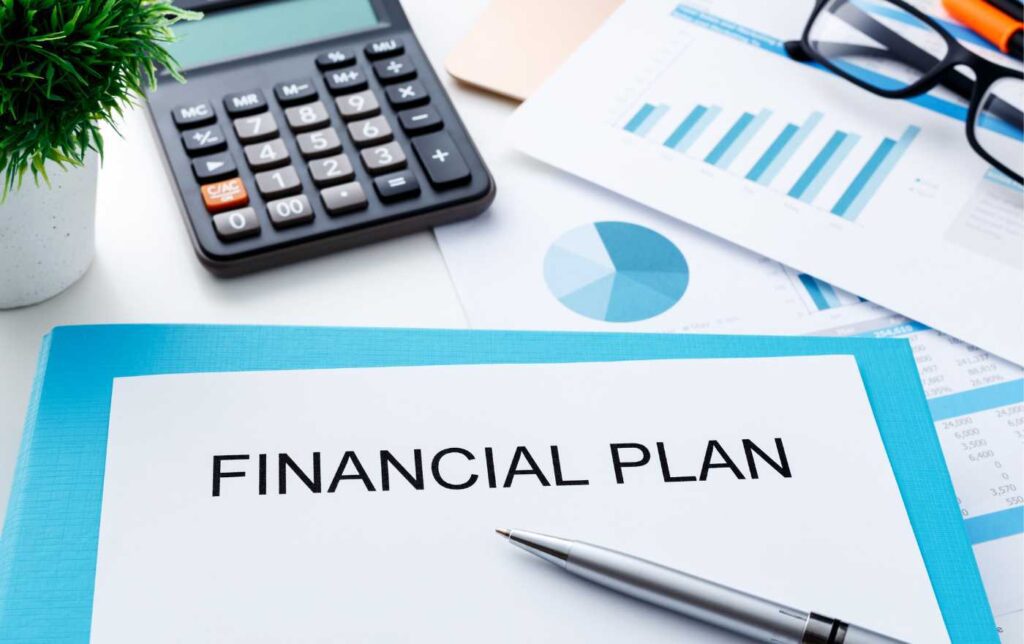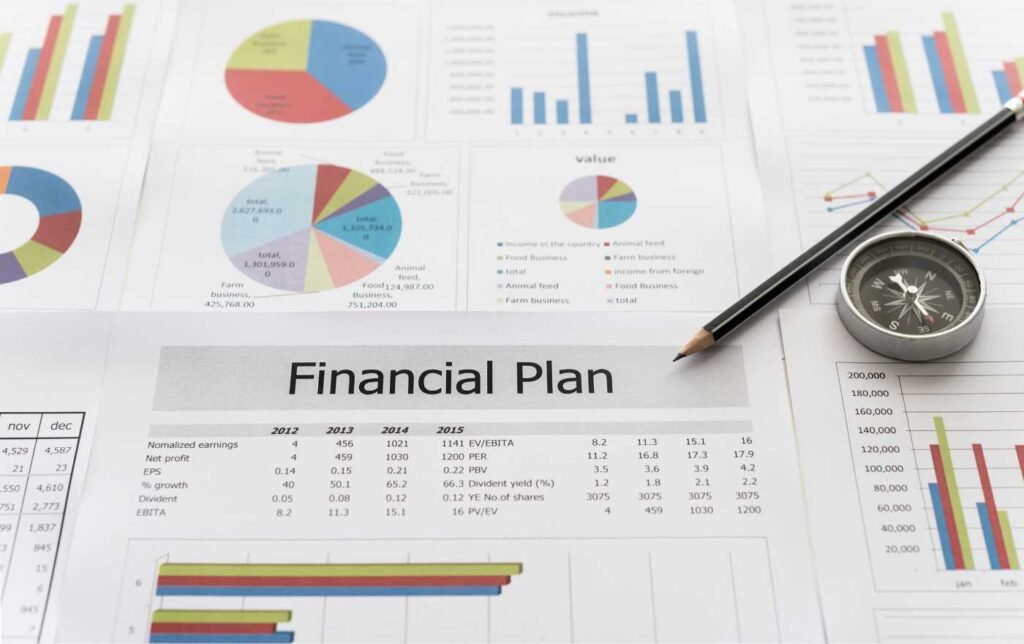Freelancing offers the freedom and flexibility many desire from their work. However, with this freedom comes the responsibility of managing your finances and planning for potential lean periods (Financial Planning). Without a steady paycheck or benefits from an employer, freelancers face unique financial planning challenges. Having the right strategies in place is crucial to ensure your freelancing success and retirement security.
Table of Contents

This article provides an overview of smart financial planning strategies tailored to the freelance profession. By following these steps, you can take control of your finances, secure your freelancing future, and gain peace of mind. Saving, budgeting, reducing debt, and diversifying income will help you smooth out the inevitable ups and downs of freelance work.
With some dedication and discipline, you can put yourself in an excellent financial position and thrive as a freelancer for years to come. The time to get your finances in order is now. Use this guide to set yourself up for a secure and successful freelance future.
Have an Emergency Fund (Important Financial Planning)
As a freelancer, your income can fluctuate from month to month. Having an emergency fund with 3-6 months worth of living expenses is critical to help you get through periods when work is slow or unexpected expenses come up.
Aim to set aside a portion of your income each month into a savings account specifically for your emergency fund. Make it a priority, treating it as a recurring expense in your budget. Choose a high-yield savings account to maximize interest earned.
An emergency fund provides a financial cushion in case you lose a major client, have an unexpected home or car repair, need to take time off for illness or experience a slow period between projects. Without savings set aside, you may be forced to rely on credit cards or loans to cover costs.
Build your emergency fund up gradually if needed, but try to reach the 3-6 month threshold as fast as possible. It will give you confidence and peace of mind knowing you have a financial backup plan in place. Replenish the fund after any major expense so you are protected for the next rainy day.
Having an emergency fund can be the difference between sinking into debt vs. weathering a storm. Make it a cornerstone of your financial planning as a freelancer.
Track Your Income and Expenses
As a freelancer, it’s crucial to have a clear understanding of your income and expenses. The best way to do this is by tracking everything diligently. There are many great apps and software programs that make tracking income and expenses quick and easy.

Using an app like Mint, you can connect your bank and credit card accounts to automatically track your transactions. Mint provides handy graphs and budgets so you can view your cash flow at a glance. You can also categorize transactions to see exactly where your money is going.
Another option is QuickBooks Self-Employed, which is designed specifically for freelancers and independent contractors. It can track miles driven for work, separate business from personal expenses, and estimate quarterly taxes. QuickBooks Self-Employed seamlessly integrates with TurboTax.
Spreadsheet programs like Excel can also be used to manually track income and expenses. The key is creating a simple, organized system that works for your freelance business. Take the time to enter transactions frequently. Schedule weekly or monthly check-ins to review reports and graphs.
Carefully tracking all income and expenses will provide the visibility needed to understand your cash flow. You’ll be able to spot problem areas, recognize when and where you’re overspending, and find opportunities to save money. With this valuable insight, you can make smart financial decisions to secure your freelance future.
Create a Realistic Budget (Financial Planning)
One of the biggest challenges for freelancers is budgeting for irregular income. Unlike a traditional 9-5 job with a predictable paycheck, freelance income can fluctuate wildly from month to month. This makes it hard to plan and stick to a budget. However, creating a realistic budget tailored to your unique income situation is essential for financial security.
The key is to budget based on your average monthly income over the past 6-12 months. This will account for seasonal dips or spikes and give you a more accurate picture of what to expect monthly. Don’t forget to factor in expenses that only come 1-2 times per year like insurance payments or domain renewals. These can throw off your monthly budget if you don’t plan for them.
Building some wiggle room into your budget is also smart. Aim to keep housing, food, transportation and other essential costs below 50% of your average monthly income. This cushion will help you navigate months where you bring in less. Having an emergency fund (ideally 3-6 months of expenses) also helps smooth out income fluctuations.

Re-evaluate your budget every quarter and make adjustments based on your updated income average. The more data you have over time, the more realistic your budget will be. With some planning and discipline, freelancers can create and stick to budgets that support their financial goals despite irregular income.
Pay Down High-Interest Debt
When you’re freelancing, having high-interest debt like credit cards or payday loans can quickly spiral out of control if you’re not careful. Even if money is tight, it’s important to prioritize paying off any high-interest debt as fast as possible.
The higher the interest rate, the more these debts can snowball. For example, if you have $5,000 in credit card debt at an 18% interest rate, you’ll pay over $900 in interest charges that first year alone. Meanwhile, the principal balance will barely budge.
To pay off high-interest debt faster:
- Make minimum payments on all debts, then put any extra funds towards the debt with the highest interest rate. Once that’s paid off, move to the next highest rate. This “debt avalanche” method saves the most on interest payments.
- Consolidate multiple high-interest debts into a lower fixed-rate loan if possible. Personal loans or balance transfer credit cards can sometimes offer better rates.
- Find extra money in your budget to allocate towards debt repayment. Consider taking on additional freelance work or cutting discretionary spending. Every extra dollar helps.
- Avoid taking on any new high-interest debt. Use a zero-based budget and an emergency fund to cover unexpected expenses rather than reaching for credit cards or payday loans.
The faster you become debt-free, the sooner you can start directing that money into retirement, investments, and other more productive uses. Paying off high-interest debt protects your freelance future.
Establish Multiple Income Streams (Financial Planning)
As a freelancer, it’s important not to rely on income from just one client or job. If that client decides not to work with you anymore or the job ends, your income could disappear overnight. This is why having multiple income streams is crucial for freelancers.
Some ways to establish multiple income streams include:
- Take on work from multiple clients rather than just one. Try to avoid relying on any single client for the bulk of your income.
- Offer a variety of services rather than just one. For example, if you’re a writer, offer copywriting, blogging, proofreading, etc.
- Have both active and passive income sources. Active income comes directly from your work while passive income comes from sources like affiliate marketing, selling products, ad revenue, etc.
- Look for ways to diversify your skills and offer new services. Take a course to expand your expertise.
- Create products you can sell like ebooks, online courses, templates, etc. The earning potential is limitless.
- Invest so you have income generated from things like rental properties, dividends, and interest.
- Get a part-time side job for extra cash flow.
Having multiple income streams takes more work upfront but provides a financial safety net. If one stream disappears, you have others to rely on. This gives you more security and flexibility as a freelancer.
Save for Retirement (Financial Planning)
As a freelancer, you are responsible for funding your retirement. Unlike traditional employees, you don’t have an employer automatically contributing to a 401k on your behalf. That makes it critically important for freelancers to be proactive about saving for retirement.
Some of the best retirement accounts for freelancers and self-employed individuals are the SEP IRA and Solo 401k.
A SEP IRA allows you to contribute up to 25% of your net earnings or $61,000 for 2023, whichever is less. The contributions are 100% tax deductible and grow tax-deferred.
With a Solo 401k, you can contribute as both the employee and employer. For 2023, the total combined contribution limit is $66,000 if you are under the age 50 or $73,500 if 50 or older. The employee salary deferral contributions are made with pre-tax dollars while the employer contributions can be pre-tax or after-tax Roth.

The major advantage of a Solo 401k over a SEP IRA is the higher contribution limits. This allows you to save more for retirement on a tax-advantaged basis. The Solo 401k may involve slightly higher administrative fees, but the tax savings generally outweigh the costs.
No matter which account you choose, the key is to start saving for retirement as early as possible. Consistently fund your retirement accounts each year, invest for growth, and keep your hands off the money until retirement. This will give your savings the best chance to grow into a healthy nest egg you can rely on later in life.
Protect Yourself with Insurance (Financial Planning)
As a freelancer, you don’t have an employer providing benefits like health insurance and disability insurance. That makes it crucial to purchase insurance policies that protect you if you get sick or injured.
Health Insurance
Purchase an individual or family health insurance plan that fits your needs and budget. Having coverage can prevent massive bills if you have a serious illness or injury. Review plan details closely and aim for a deductible you can afford.
Disability Insurance
Disability insurance replaces a portion of your income if you’re unable to work due to illness or injury. It’s essential since you rely on your work to earn money. A policy can help pay bills until you recover. Opt for enough coverage to replace 60-80% of your income.
Liability Insurance
Liability insurance protects you if you’re sued for property damage or injuries caused by your services or business operations. For example, tech consultants may need errors and omissions insurance and photographers need liability coverage. Match your policy limits to potential risks.
Having the right insurance policies can provide vital financial security if the unexpected happens. Work with an insurance broker to review options and get adequately insured. The premium costs are well worth it.
Invest for the Future
When you have a secure emergency fund and are meeting your other financial goals, investing extra income is wise to grow your money over time. As a freelancer, investing gives you options to supplement retirement savings beyond your own business. The three main investment types to consider are stocks, bonds, and real estate.
Stocks allow you to buy shares of ownership in public companies. Historically, stocks have returned around 10% per year. You can invest in individual stocks or mutual funds and ETFs that contain a basket of stocks. The stock market involves risks, but long-term investing over 5-10+ years helps smooth the volatility. Consider starting with index funds that track the overall market.
Bonds are investments where you loan money to governments or corporations for a set period of time, receiving interest payments. Bonds offer more stable returns than stocks, but lower growth potential. Mixing bonds into a portfolio provides diversification. Bond funds and ETFs allow you to invest in many bonds at once.
Real estate can generate income from rent and grow in value over time. Options include investing in rental properties, REITs that own properties, and real estate crowdfunding platforms. With rental properties, you earn income when occupied and benefit from property appreciation. REITs and real estate platforms provide ways to invest in real estate without direct ownership.
Investing gives freelancers another tool to build long-term wealth. Consult a financial advisor to determine the right mix of stocks, bonds, and real estate investments for your goals and timeline. Consistently investing over many years can grow your money well beyond savings accounts.
Financial Planning is Important for Succesful Freelancing
As a freelancer, having a smart financial strategy is crucial for securing your future. By following the key tips outlined in this article, you can take control of your finances and build long-term security.
To recap, the top recommendations covered in the process of Financial Planning:
- Build an emergency fund with 3-6 months of living expenses to handle unexpected costs or income disruptions. This provides a critical buffer when freelancing.
- Closely track your income and expenses. This awareness helps inform smarter spending and savings decisions. Use a budgeting app or spreadsheet to stay organized.
- Create a realistic monthly or annual budget that aligns with your income and financial goals. Budgeting is essential for managing cash flow.
- Pay down high-interest debts like credit cards aggressively to avoid wasting money on interest charges. Consider balance transfer or consolidation options.
- Establish multiple income streams beyond your core freelance work to increase financial stability. Explore diverse client projects, passive income sources, and side hustles.
- Consistently save for retirement to secure your later years. Take advantage of IRAs and other tax-advantaged retirement plans.
- Protect yourself with relevant insurance policies like health, disability, life, and liability insurance. Don’t take unnecessary risks.
- Invest extra funds to grow your wealth over time. Consider retirement accounts, stocks, bonds, real estate, and peer-to-peer lending.
By sticking to these fundamental strategies, freelancers can take control of their financial life and future. The keys are budgeting, saving, and smart planning. If you have any more questions or want to discuss financial planning with fellow freelancers then contact CityFreelancer.




